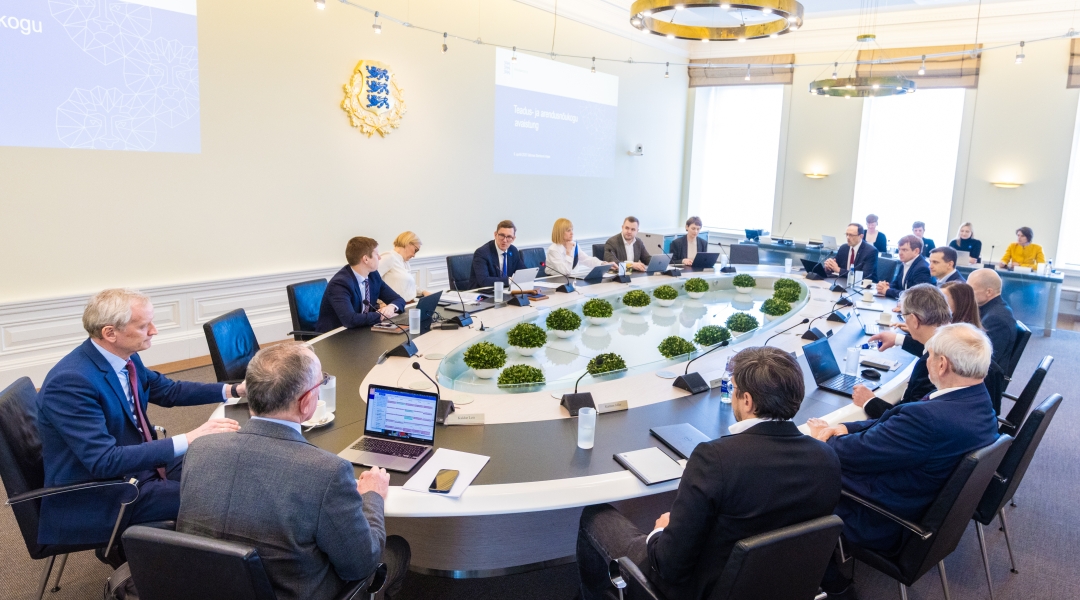“Above all, I expect the RDC to make proposals on what the state could do differently to ensure that research results reach businesses faster,” the Prime Minister said. “We also need ideas on how to increase the interest of companies in research-based solutions. A country with a limited domestic market and an export-oriented economy certainly needs to invest in higher added value. Estonia has to stand out with the quality of its products, because we cannot compete with quantity.”
The Prime Minister emphasised that the role of the RDC could be to create a stronger bridge between research and the economy. According to Michal, he expects expertise, a constructive approach and the courage to make proposals from the members of the RDC. “I would like our discussions to end with concrete, well-considered proposals that take into account Estonia’s current situation. When discussing the allocation of resources, we also need to have the courage to point out what needs to be given up in order to fund important activities,” the Prime Minister said.
In order to make the work of the RDC more effective, it was agreed that each meeting would be chaired and prepared by a member of the Council together with the Government Office. At today’s opening meeting, the President of the Estonian Academy of Sciences Mart Saarma spoke about the potential role of research in Estonia’s future, and how research and entrepreneurship can build national wealth.
The issues discussed at today’s meeting included how to support innovation and strengthen cooperation between science and business. Amongst other things, the proposals made by the members of the RDC pointed to the need to address the funding of the expansion phase of growing research-intensive companies, to fill the gap in support for cooperation between research institutions and companies, and to make more active use of innovation procurement in the state. They also pointed to the need to balance the funding of applied science compared to basic research, and to invest more in applied specialities in higher education compared to soft sciences.
The attendees approved this year’s action plan, which includes discussing the valorisation of Estonian language resources and their use in large language models; the impact of the activities of universities on economic competitiveness; the data economy; and funding opportunities for early-stage innovation.
The next meeting of the RDC is scheduled for 11 June, when the President of the European Research Council (ERC) Maria Leptin will visit Estonia.
The members of the RDC include Kristina Kallas, Minister of Education and Research, and Erkki Keldo, Minister of Economic Affairs and Industry, as the ministers responsible for the fields. A former member who will stay is Toomas Asser, Rector of the University of Tartu.
The new members of the RDC are: Dan Bogdanov (Cybernetica AS, Head of Research); Andi Hektor (GScan OÜ, Founder and Head of Strategy); Petri-Jaan Lahtvee (Founder of ÄIO tech OÜ, Associate Professor of Food Technology and Bioengineering at TalTech); Tiit Land (TalTech, Rector); Jane Luht (STACC OÜ, Head of Development), Maive Rute (European Commission, Deputy Director General of DG Internal Market, Industry, Entrepreneurship and SMEs, Member of the TalTech Council); Mart Saarma (President of the Academy of Sciences, Research Director at the University of Helsinki); Rainer Sternfeld (NordicNinja VC, entrepreneur and investor) and Mart Ustav (Icosagen AS, CEO).
Gallery: Teadus- ja arendusnõukogu istung, 09.04.2025 | Flickr
